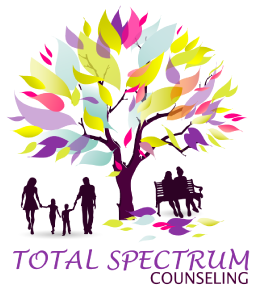
Clinical Assessment
Psychological problems are often complex. Many times people receive diagnoses, therapy, or medications based on a simplistic understanding of problems or by focusing too heavily on overt symptoms instead of getting a sense of the whole person. This practice can lead to adverse drug reactions and/or years of ineffective therapy. Clinical psychological assessment seeks to understand problems on deeper level. Patterns of responding to testing tasks are scientifically analyzed and combined with a person’s individual story to create a more in-depth picture of a person’s difficulties. This leads to more accurate diagnoses, better therapy, and understanding oneself apart from an often demoralizing diagnosis.
Assessment usually takes place over multiple meetings. First, a detailed history is gathered. Then a client will be asked to participate in various psychological tests – some paper and pencil, some responding to the psychologist. Finally, a detailed report is written and shared in a feedback session.

Educational/Intellectual Assessments
If you or your loved one are having academic difficulties, it is almost never due to a lack of motivation or laziness. People inherently want to learn – and unidentified obstacles get in the way. Everyone learns best in their own particular manner, and this does not always include traditional means. Sometimes academic stress is due to undiagnosed disabilities, including attention issues or Autism. It may also be due to a learning difference such as Dyslexia (difficulty decoding written words) or Dyscalculia (difficulty understanding mathematical concepts). Through an educational or intellectual assessment, Total Spectrum Counseling can help you determine your learning type and help guide you toward the path of reaching your full potential.

Career Assessment
Many people experience significant anxiety about their career. Other individuals feel unhappy in their current career and are seeking change. Career assessment involves a detailed interview, assessment of intellectual strengths, and questionnaires to align personality characteristics and interests with a particular career path.

Pre-Operation
Many surgeons require a psychological assessment before performing body altering surgeries such as bariatric bands, plastic surgery, or gender affirming surgery. Total Spectrum Counseling is proud to offer a comprehensive evaluation for individuals seeking these services. We take a detailed history and utilize the best objective and projective tests to determine if a candidate can meet the demands of a life-altering procedure. For gender affirming surgery, Total Spectrum Counseling offers single session assessments.

What does Assessment Look Like?
The following is a brief explanation of the process involved in a psychological assessment.
- History gathering
- Formal psychological tests
- Written communication about results
- A feedback session with the assessor
1. History gathering
We begin with a clinical interview. This interview covers aspects of your history and symptoms. We usually include information about development, family, relationships, school/vocation, culture, medical issues, and psychiatric issues. We may also ask permission to contact others to give further information. This may include parents or other close relatives, a teacher/professor, or significant others. Details about what we ask may change depending on the purpose of the evaluation. For example, if we are doing a career assessment, we do not need to gather detailed information about your development, medical history, or relationships. This process usually takes 1-2 hours and can be done in person or through telehealth.
2. Formal psychological testing:
The types of tests required and the time it takes to complete these tests vary depending on the purpose of the evaluation. Many tests are available online now and can be filled out on your own time through various portals. We may want to circle back and explore answers with you. Other tests seem like clinical interviews and may cover similar information covered in the history gathering portion but with more detail. For example, ADHD, Autism, and ADHD all have semi-structured interviews. This means that there are structured questions to ask with room for clarification questions throughout. If we are assessing cognitive or learning issues, these usually encompass a collection of small tasks looking at various skills. This type of formal test is more structured, typically involves strict directions and procedures, and can be somewhat taxing. It is ok to ask for a break if needed. A cognitive assessment or a learning assessment typically take about 2 hours each. Many of these can be done via telehealth, but some subtests are required to be done in person.
3. Written communication about results:
The results of your testing will be analyzed and written up in a formal report. The length and breadth of this report will depend on the reason for your assessment. Testing focusing solely on a diagnostic will be much shorter than if we have to document disability or report the results of many tests. This part is very labor intensive and may take several weeks following the completion of the testing.
4. A feedback session with the assessor:
We will meet one more time to go over your assessment results. We will walk you through the report and review all tests conducted, their individual findings, and how it all fits together in our conceptualization. Please do not be shy if you disagree with any findings. Testing results often take interpretation, and client feedback about their lived experience can help us interpret findings more accurately. We will work together to best communicate your experience.



